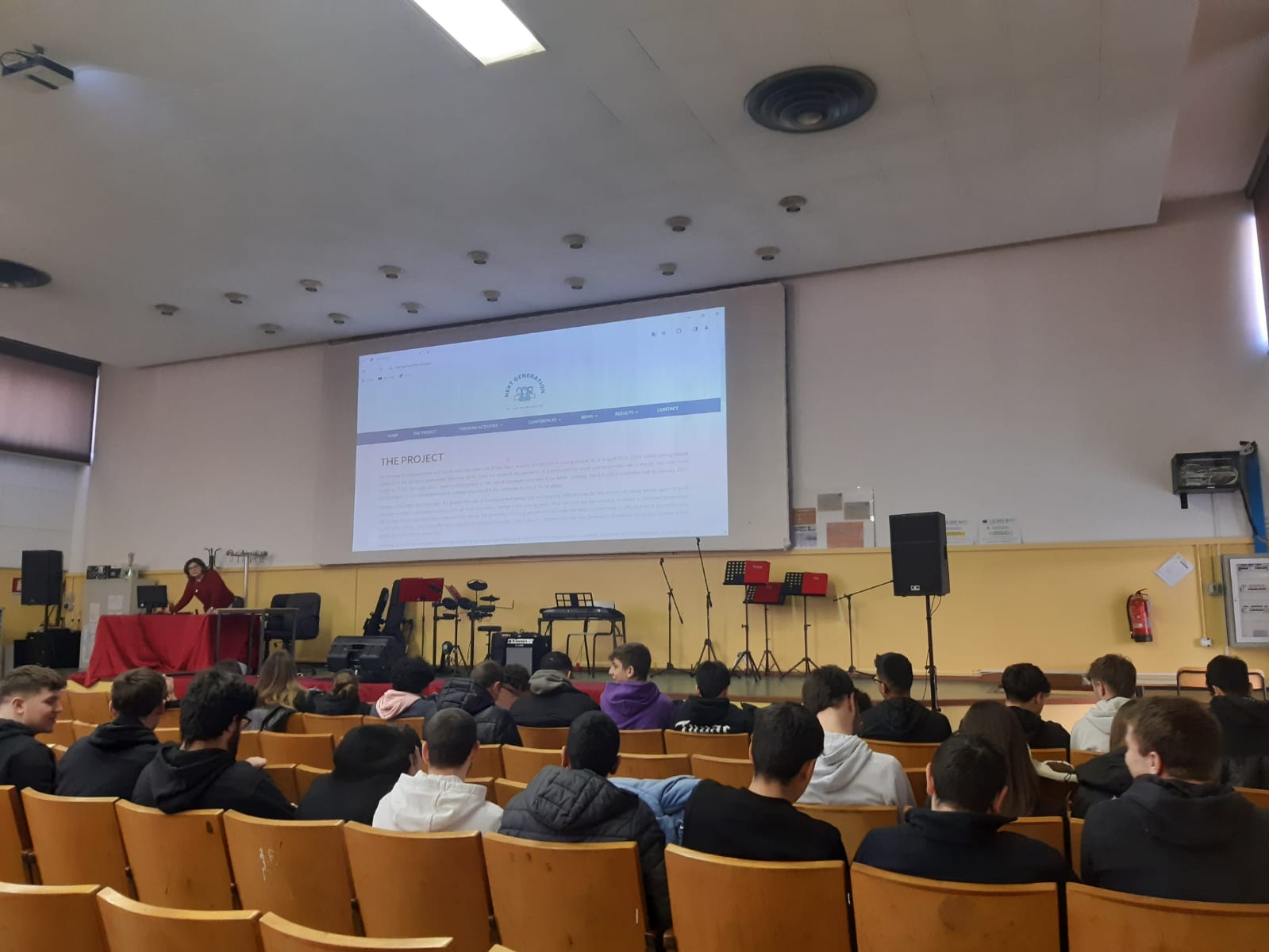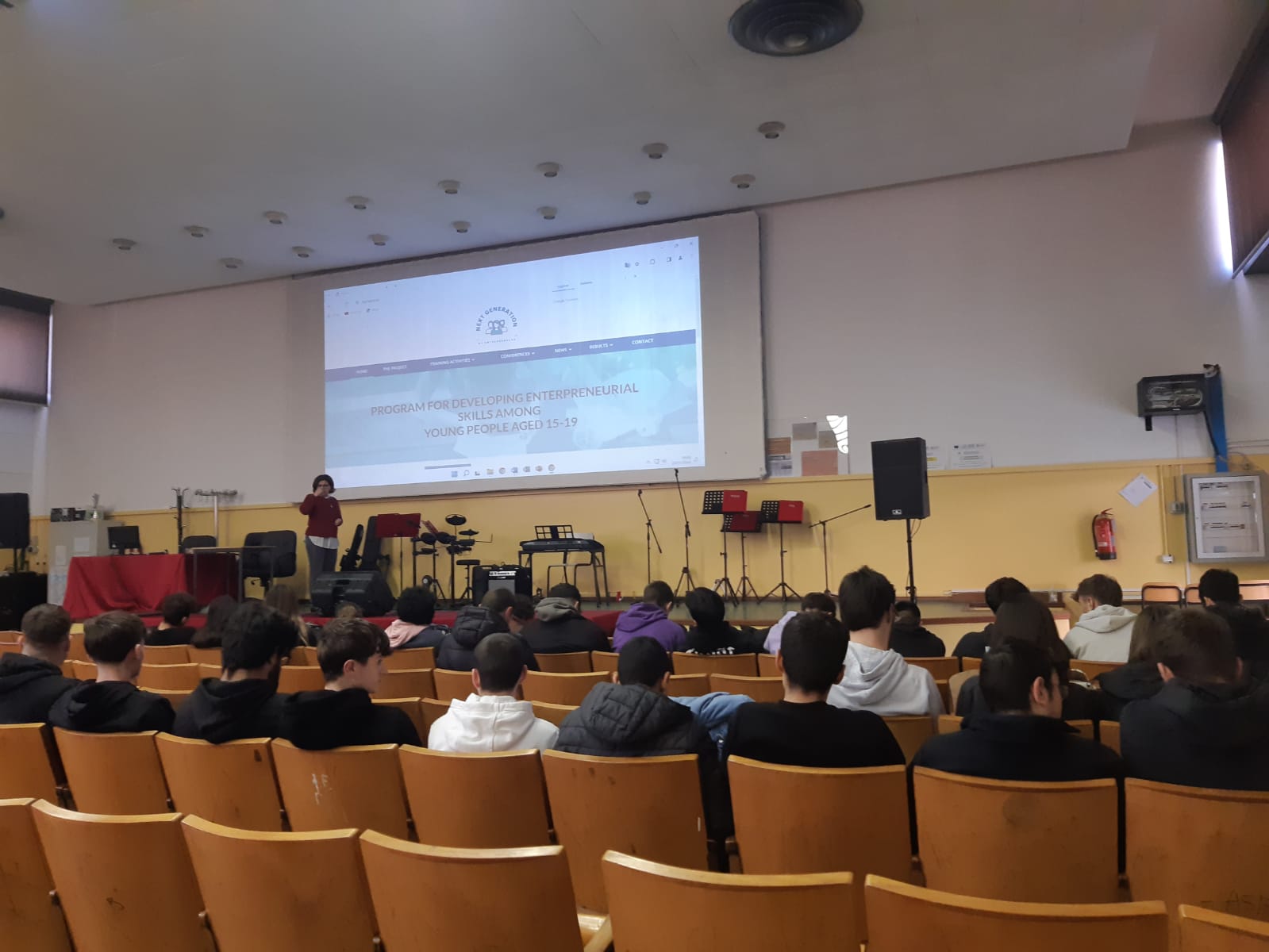On October 25, 2024, RUANA hosted the final conference of the Erasmus+ project Next Generation of Entrepreneurs (NGOE) in Lodi, Italy. This culminating event celebrated the achievements of the NGOE project, with a particular focus on presenting the latest project results—PR4 (Online Toolkit for Young People) and PR5 (Youth Worker Implementation Guide)—to an engaged audience of local stakeholders. Attendees included youth workers, educators, representatives from local business and parents’ associations, and community leaders dedicated to fostering entrepreneurial education and youth empowerment.
Welcome and Opening Remarks: The Future of Responsible Entrepreneurship
The conference began with a warm welcome and opening address that underscored the critical role of innovation, adaptability, and social responsibility in entrepreneurship. Speakers emphasized that, in a rapidly changing world, young entrepreneurs must be prepared to innovate, adapt, and create ventures that not only succeed but also contribute positively to society. A recurring theme throughout the day was the need for entrepreneurship to promote social justice and create a meaningful impact on local and global communities.
The importance of equipping young people with entrepreneurial skills that are both forward-thinking and grounded in ethical responsibility was stressed, encouraging participants to envision a future where business practices contribute to the greater good.
Engaging Discussions: Innovation, Adaptability, and Community Impact
The conference included interactive panels and group discussions that allowed stakeholders to reflect on the themes of innovation, adaptability, and community impact in entrepreneurship. Participants shared insights on the following key topics:
•The Role of Entrepreneurship in Social Change: Discussions highlighted how entrepreneurship can be a vehicle for promoting social justice, equality, and sustainable development. Participants emphasized the importance of youth entrepreneurs viewing their ventures not just as profit-driven but as catalysts for positive social transformation.
•Adapting to Rapid Change: Stakeholders discussed the increasing need for adaptability in a world of evolving technological, economic, and environmental challenges. The NGOE project’s resources were seen as invaluable tools to equip young people with the flexibility and resilience needed to thrive in an uncertain future.
•Collaboration and Networking: The conference provided an invaluable networking platform, where attendees forged new connections and explored potential partnerships. These interactions highlighted the power of collective efforts in driving long-term impact, ensuring that the resources developed by the NGOE project continue to support youth entrepreneurship in meaningful ways.
Sustainability and Responsibility in Youth Entrepreneurship
A major focus of the discussions was on sustainability and the ethical responsibilities of young entrepreneurs. Participants were encouraged to consider entrepreneurship as a means to foster sustainable business practices and support community well-being. This emphasis on responsible entrepreneurship resonated with attendees, who were inspired to champion values of integrity, inclusivity, and environmental consciousness in their professional endeavors.
Through case studies and examples shared during the sessions, young entrepreneurs were shown how they could create ventures that address social issues and generate positive change. The conference underscored the idea that entrepreneurship can and should be a force for good, urging young people to adopt an approach that balances innovation with responsibility.
The conference reinforced the NGOE project’s mission to empower young people with the skills, knowledge, and ethical foundation needed to shape a better world. By focusing on adaptability, innovation, and community impact, the NGOE project has left a lasting legacy that will continue to inspire young entrepreneurs to pursue meaningful, sustainable, and socially responsible business ventures.





 Funded by the European Union.
Funded by the European Union.



